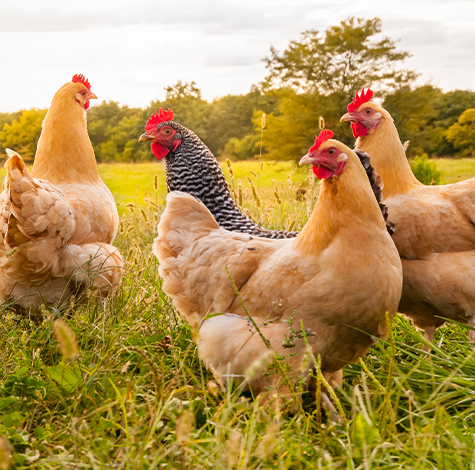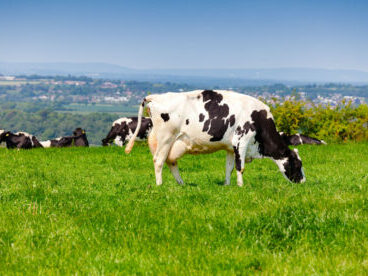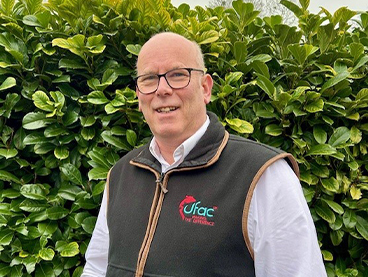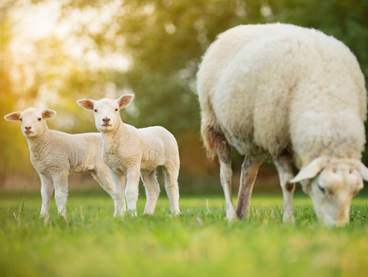UFAC-UK launches next generation of sustainable feed alternatives to complement palm- free dairy feed supplementation
UFAC-UK has launched a ground-breaking new partial soybean meal replacement for dairy diets that improves yields, solids and feed conversion efficiency (FCE), while reducing reliance on imported soya by at least a third.
Following on from the launch of envirolac, UFAC-UK’s palm-free fat supplement short-listed for the RABDF Innovation Award in 2022, cholymet, also commended at the 2023 Cream Awards, represents the next-generation of UK sourced, sustainable protein supplementation, set to transform dairy cow diets in the UK.
“The role of protein nutrition in dairy animals in the UK is increasingly coming into focus in terms of feed efficiency and environmental impact, particularly with pressure to reduce nitrous oxide emissions and to cut carbon footprints on imported soya,” explains David Turnbull, UFAC-UK national sales manager.
“We have been looking at how lowering the level of dietary protein, through amino acid balancing and precision feeding, can improve dairy cow performance, while also helping to protect the environment,” he adds.
Through in-house innovation, research and development, UFAC-UK has produced a balanced combination of essential amino acids and choline, to improve milk production efficiency, protect the environment and increase profitability to the producer.
“Protein supplies the essential amino acids to the cow for health, growth, reproduction and milk production,” says David, “while choline interacts with methionine in various metabolic functions that influence cow health and productivity.“

Commercial farm studies
UFAC-UK has undertaken commercial farm studies, with the aim of reducing the amount of soybean meal fed, while improving cow health, performance and profitability.
The first commercial farm study was designed in a controlled environment on a commercial herd of 190 high-yielding cows in the UK.
In the study 33% of the soybean meal in the Total Mixed Ration (TMR) was replaced with the cholymet protein supplement and prairie meal, to maintain the ME content. This reduced the Total Crude Protein content of the feed by 1%.
The study, conducted on cows fed the supplement from 21 days pre-calving to 50 days post calving, with results taken from cows 7 – 100 days in milk, had the dual objectives of reducing the use of soya without impacting cow health, performance and profitability, while reducing ammonia emissions from the herd.
The new granular, free-flowing cholymet protein supplement, a combination of rumen inert essential amino acids and choline, returned impressive results that went far beyond the initial trial objectives.
“The cows fed the reduced soybean meal diet with cholymet yielded an extra 3.37kg/milk/day, with an additional 0.17% butterfat and 0.14% protein,” explains Mike Chown, UFAC-UK ruminant technical manager.
“Cows showed an increase in feed utilisation when fed on cholymet, with increased milk yield and total milk solids, despite no difference in dry matter intake,” he adds.
The protein captured by the cows fed on cholymet (31%) was an improvement of 8% on the UK national average.
“The potential financial benefit to UK dairy producers of partly replacing soybean meal with cholymet plus prairie meal, based on extra milk yield at £0.37/l, is £1.25 per cow per day.* That represents a 3.78:1 Return on Investment,” says Mr Chown.
The economic advantages were also demonstrated in a separate commercial farm study in the UK, where the total extra milk income per cow increased by £167.69, against a total cost per cow of £35.86, again being fed from 21-days pre-calving and 50-days post-calving, with results from cows 7-100 days in milk.
An alternative to the feeding of soybean meal
Cholymet allows the reduction of total dietary protein through amino acid balancing. Precision feeding can improve nitrogen utilisation efficiency, reduce nitrogen emissions and enable the substitution of soya with locally produced protein sources, therefore improving dairy cow performance and health, while protecting the environment.
Balancing rations with essential amino acids in the presence of choline can also help feed cows to their genetic potential, minimising metabolic disorders and helping reduce negative energy balance (NEB) in early lactation, so as to reduce loss of body condition.
Loss of body condition and metabolic diseases represent the main causes of poor cow health and fertility, leading to reduced longevity and unsustainable dairy farming.
“What we have seen from our trials is that we are achieving benefits leading to better cow health and reproductive performance, as well as more milk and total milk solids,” concludes Mr Chown.


 Back to News
Back to News 



